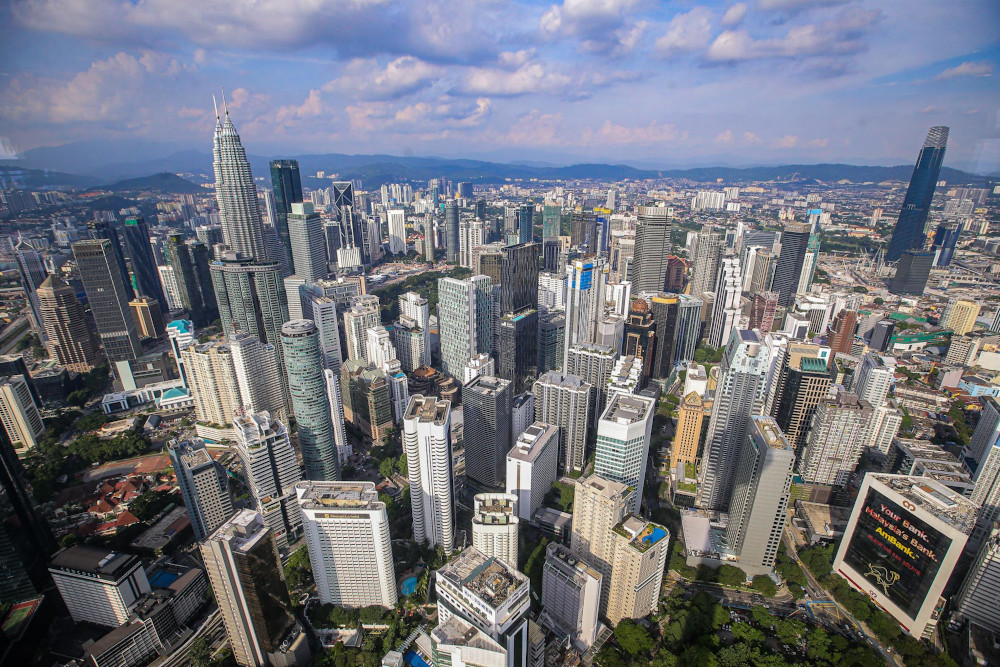KUALA LUMPUR, May 3 — Malaysia must lay a strong foundation to support the new wave of digitalisation, especially now that the Covid-19 pandemic has accelerated the growth of the digital economy and opened up opportunities for a variety of new digital businesses, the Malaysia Digital Economy Corporation (MDEC) said.
Senior vice-president, investment and brand division Raymond Siva said laying a solid foundation is critical to ensure that Malaysia could holistically transform itself into an advanced digital economy and the agency continued to see investment momentum in the digital tech industry domestically.
“Recent commitment from global giants such as Huawei and Dell Technologies is a glowing endorsement of Malaysia’s digital capabilities, platforms and infrastructure, propelling us on course to be the Heart of Digital Asean,” he told Bernama recently.
Huawei Technologies (Malaysia) Sdn Bhd chief executive officer Michael Yuan said the profound impact of digital transformation on global economies, particularly during the Covid-19 pandemic, has resulted in a violent shift to digital.
“In order to contribute actively and consistently to the country’s digital acceleration, there are three key technologies that we must leverage — 5G, cloud computing and artificial intelligence (AI).
“5G, for one, will unleash a world of opportunities by simply enhancing connectivity and mobility. Hence, 5G is billed as the catalyst for unlocking potential growth across industries such as medical, education, agriculture and smart cities,” he said.
He said 5G combined with big data analytics (BDA), cloud computing, AI and other innovative technologies would accelerate the arrival of a golden age of information over the next decade.
“Furthermore, when paired with AI, these technologies will enhance flexibility, agility and resilience to digital solutions, therefore giving rise to further innovation, introducing new revenue streams and driving cost efficiencies not only for businesses but all sectors of the economy as well as society,” Yuan said.
Therefore, he said MDEC and Huawei would continue to conduct joint research and services related to digital technologies by working with various government bodies to publish white paper studies for the benefit of improving Malaysia’s digital economy.
Meanwhile, Dell Technologies senior vice-president for South Asia and managing director of Malaysia Pang Yee Beng said the country has gone through almost a full year of navigating uncertainties and challenges due to Covid-19.
“The world is going through unprecedented changes impacting every aspect of life and what we’ve experienced as a nation has required all of us to pivot to new ways to keep our economy and lives intact and progressing,” he said.
He said the launch and implementation of the Malaysia Digital Economy Blueprint (MyDIGITAL) is a strategic move to build economic resilience and transform the country into a digital and high-income nation, paving the way for Malaysia to be ready for the next phase of the digital era called the “data decade”.
According to MDEC, a total of 45 MSC status projects were approved last year with investments worth RM3.9 billion, which would pave the way for 3,794 new employment opportunities for Malaysians.
It said of the total investments, RM2.6 billion (66.2 per cent) came from domestic investments while RM1.3 billion (33.8 per cent) came from foreign investments.
The agency said the Department of Statistics Malaysia projected the digital economy to continue its significant contribution to the country in 2021 based on an estimated 19.1 per cent contribution to gross domestic product (GDP) in 2019.
It said this is also in line with MyDIGITAL estimation that the digital economy would contribute 22.6 per cent contribution to GDP and opening up 500,000 jobs by 2025.
MDEC said realising Malaysia’s role as a first-mover for the digital economy as well as overcoming the digital divide through digital technologies, the agency focused on developing skillsets within the Fourth Industrial Revolution (4IR) and emerging digital technologies such as BDA, AI, Internet of Things (IoT), financial technology (fintech), data centres, cloud services and robotics.
On the digital infrastructure front, MDEC is helping to foster an enabling environment for rapid digitalisation as well as supporting the government’s initiatives to nurture public-private partnerships, a critical step in accelerating Malaysia’s digital transformation, it said.
Dell Technologies first set its foothold in Malaysia 26 years ago and at present, operated three facilities across Malaysia which serves as an integral site supporting regional and global operations.
In June 2019, the Dell Digital Labs was established at its global business centre in Cyberjaya, one of the few laboratories Dell Technologies has invested globally over the last few years, to help build cloud-native software and groom a highly-skilled Malaysian workforce that is trained for the data-driven era. — Bernama






















